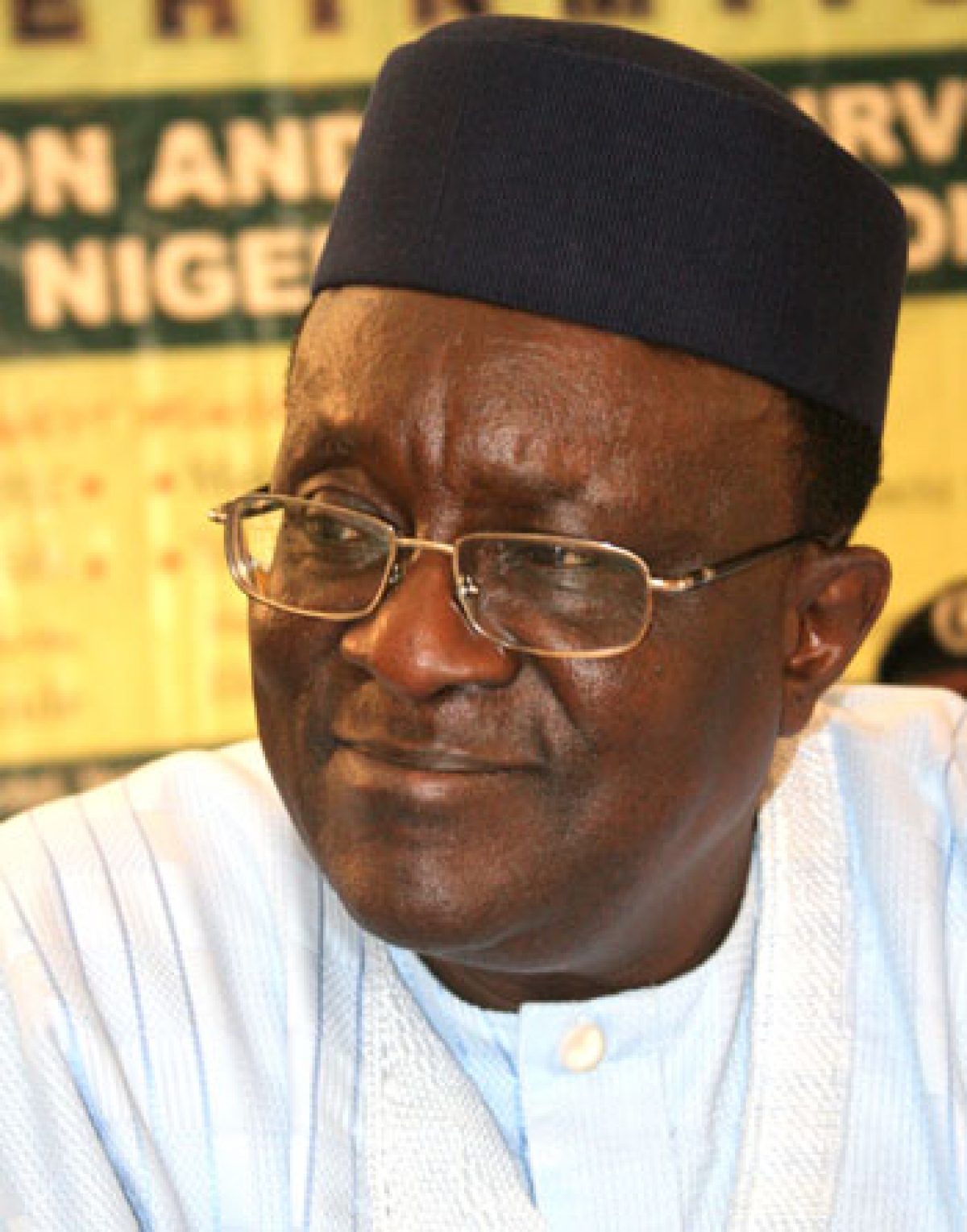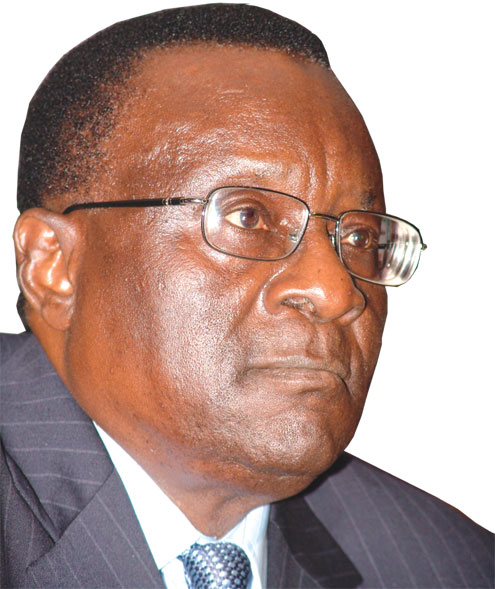Success Stories
Meet Gani Fawehinmi:Human Right Lawyer And Activist
Chief Abdul-Ganiyu “Gani” Oyesola Fawehinmi was a Nigerian author, publisher, philanthropist, social critic, human and civil rights lawyer, and politician.

Meet Gani Fawehinmi:Human Right Lawyer And Activist. Chief Abdul-Ganiyu “Gani” Oyesola Fawehinmi was a Nigerian author, publisher, philanthropist, social critic, human and civil rights lawyer, and politician.
He held the chieftaincy title of the Lamofin of Ondo.
In this article, RNN has provided simple and clear information about Gani Fawehinmi:Human Right Lawyer And Activist you should know.

Meet Gani Fawehinmi:Human Right Lawyer And Activist.Meet Gani Fawehinmi:Human Right Lawyer And Activist
Early life
On April 22, 1938, Gani Fawehinmi was born into the Saheed and Munirat Fawehinmi family of Ondo, in the state of Ondo. His father, Chief Saheed Tugbobo Fawehinmi, the Seriki Musulumi of Ondo, was a prosperous timber trader, philanthropist, civic activist, and Muslim chieftain of the Yoruba people. He was said to be a follower of Ajao, who brought Islam to Ondo City, southwestern Nigeria. On February 5, 1963, Chief Saheed Tugbobo Fawehinmi passed away at the age of 89.
The late Ondo Chief Lisa Alujanu Fawehinmi, who fought successfully for and on behalf of the Ondo people during the nineteenth century, was Gani’s grandpa. Therefore, the name “Alujanun,” which signifies spirit. He passed away at 92 years old.
Education
Gani received his early education from 1947 to 1953 at Ansar-Ud-Deen Primary School in Iyemaja, Ondo State. From 1954 to 1958, he attended Victory College Ikare, a Christian school, where he studied for and passed the West African School Certificate Examination in 1958. He earned the nickname “Nation” during his time in college due to his intense interest in governmental, legal, and political issues. The two most widely read newspapers in Nigeria at the time, Daily Times and West African Pilot, were read religiously by him. Up until 1961, he did a short stint as a legal clerk at the High Court of Lagos.
In 1961, Gani enrolled to study law at the University of London’s Holborn College of Law. His father passed away when he was a student. Because of his limited financial resources, he struggled a little to finish his academic degree in London. This meant doing numerous menial jobs in London, where he also became familiar with the writings of radical or revolutionary individuals such Karl Marx, Winston Churchill, David Ben-Gurion, Ghandi, Mao Tse Tsung, and Fidel Castro. After traveling back to Nigeria in 1964, he was admitted to the bar that year. Before setting out on his own, he spent a brief time working at the legal office of his late brother, the Hon. Justice Rasheed Olabamidele Fawehinmi.
Law career
Before opening his own chambers in April 1965, which were rumored to be the largest in Nigeria, Gani briefly practiced law alongside his older brother, the Honorable Justice Rasheed Fawehinmi. His chambers handled around 5700 briefs between 1965 and 2002. Two years after his passing, the chambers, which housed a library of over 290,000 books on law and legal topics, were shut down.
Gani gained the nickname “Authority” thanks to his renown legal acumen and his capacity to recall prior cases in favor of current ones. He was keen to teach other attorneys this technique and to simplify legal research. He made court appearances in every corner of the nation.
Politics
The National Conscience organization, a human rights movement dedicated to defending the economic rights of the oppressed Nigerian masses, is where Gani first developed an interest in politics in 1994. In violation of military orders prohibiting the creation of political parties, the National Conscience reorganized as the National Conscience Party (NCP) on October 1, 1994.
He was persecuted together with the other party leaders because of their political actions. On the NCP platform, he organized a number of political protests against the General Sani Abacha administration. The military brought charges against him and a few other party officials, including its general secretary Femi Aborisade, as a result of these gatherings. At the age of 64 in 2002, Gani announced his intention to run for president. He made an unsuccessful bid for the presidency on behalf of the NCP in 2003.
Works and Legacy
In addition to practicing law, Gani also wrote about it. On October 1, 1985, he established The Nigerian Weekly Law Report, which at the time was unmatched in Africa in terms of creativity, content, style, and regularity. Before his passing, he was the publication’s main editor. He has written and edited a number of legal texts, including:
- Nigerian Law of Habeas Corpus (1986)
- Nigerian Law of the Press under the Constitution and the Criminal Law (1987)
- The Bench and the Bar in Nigeria (1987)
- Murder of Dele Giwa: the Right of a Private Prosecutor (1988)
- Courts’ System in Nigeria: A Guide (1992)
- Human Rights Law Reports of Africa (1998)
- The Struggle for Genuine Democracy in Nigeria – Thirty Days of Civil Rule in Nigeria (Post-May 29, 1999) What Hope for Democracy? (1999)
Philanthropy
Gani Fawehinmi had a strong enthusiasm for disadvantaged people in society, which motivated him to frequently offer his skills without receiving anything. He handled more than 1500 briefs for members of his self-described constituency—the impoverished, the deceived, the neglected, the downtrodden, and the persecuted—for free in order to safeguard, defend, and advance Nigerians’ basic human rights.
Every time his family hosted a party, he was reputed to sew clothing for the street beggars and to cook a supper for them on the last Saturday of each month.
Based on his personal experience of financial hardship as a student in London, Gani established his own scholarship program in 1971. Since then, his generosity has helped more than a thousand Nigerian students from all around the nation. Even after his passing, the plan has continued to help those who are economically vulnerable.
He traveled to various nations in 1973 and 1974 to gather research materials for his book People’s Right to Free Education because he believed in the availability of free education at all levels. In 1975, he founded the Free Education Association of Nigeria.
Critic of social and political issues
In addition to utilizing his own resources to organize nonviolent protests and public demonstrations during the military dictatorship, Gani continued to use the law up until his passing to oppose actions he believed to be illegal and against the interests of the country.
Gani was persecuted as a result of his open criticism of the military governments. He was taken into custody forty times between 1969 and 1996, in twelve different jails and detention facilities all throughout Nigeria, including the infamous Gashu’a prison in Yobe State. Additionally, his passport was 10 times taken away to prevent him from leaving the country.
In order to stop him from organizing the public, security personnel physically attacked him, he was the object of many assassination attempts, and his home and workplace frequently came under raids and attacks. Between 1978 and 1995, the government frequently seized his books and its agents filed a number of criminal complaints against him.
Awards
Fawehinmi received the Bruno Kreisky Prize, which is given every two years, on June 11th, 1993. International leaders who support human rights concerns are given this prize, which bears Bruno Kreisky’s name. He was given the ‘Bernard Simmons Award’ by the International Bar Association in 1998 for his efforts promoting democracy and human rights.
Chief Fawehinmi received the Order of the Niger, Nigeria’s second-highest honor, posthumously in 2018.
Death
Fawehinmi lost his fight with lung cancer in the early hours of September 5, 2009. Age-wise, he was 71. Ondo City, Nigeria, where he was born and raised, hosted his funeral on September 15, 2009. Fawehinmi passed away with regret since, due to the status of his nation at the time of his passing, he turned down the highest honor bestowed upon him by his nation on his deathbed.
More Articles on RNN
Meet Abdourahamane Tchiani, The Niger Coup Leader
Meet Mo Abudu:Top Nigeria Media Mogul
